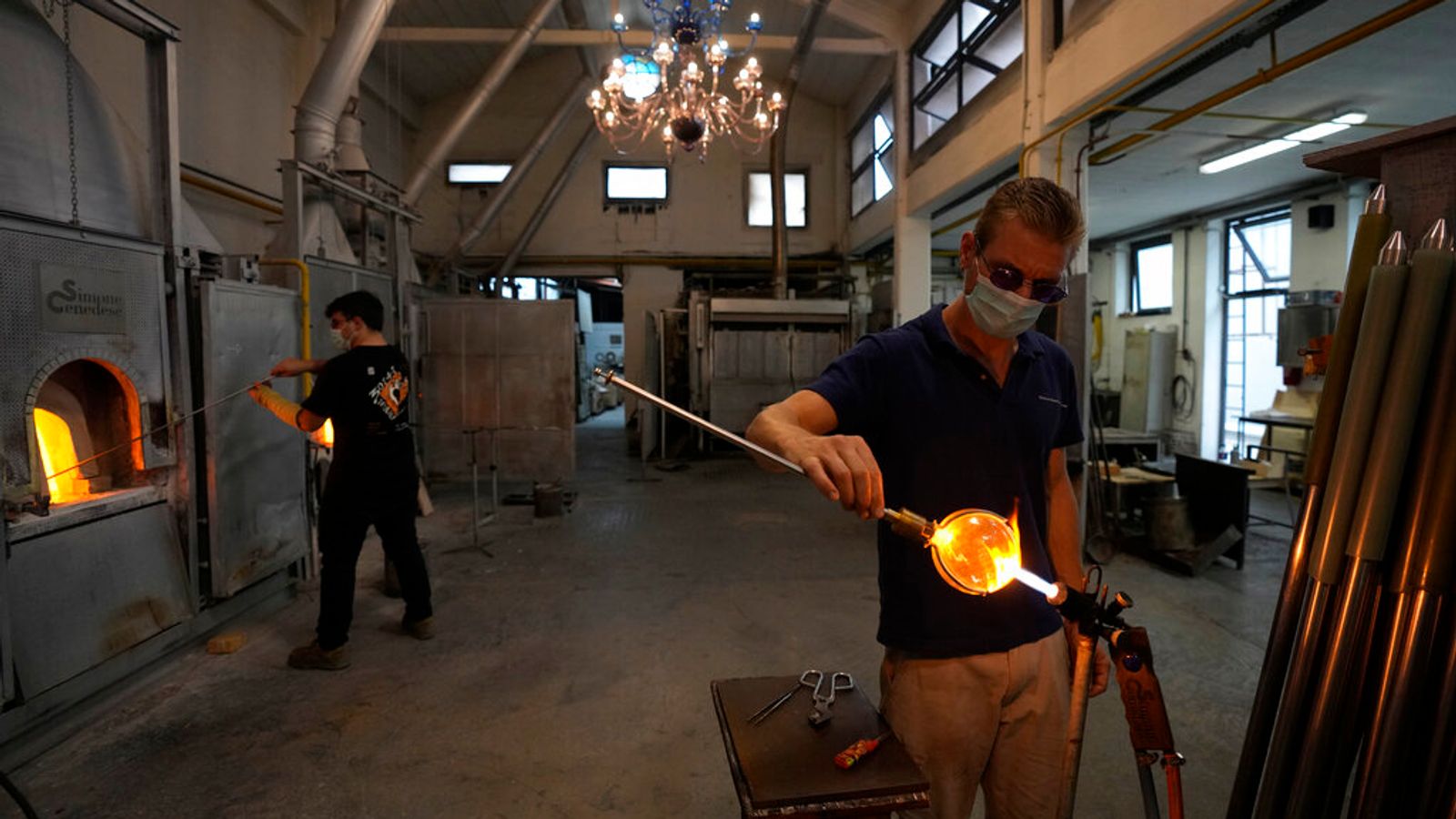Surging energy prices are threatening the famous glassmakers of Italy’s Murano island, with businesses facing a five-fold increase in bills to keep their ovens burning.
The artisans of Murano – in the Venice lagoon – use methane to power their ovens – which have to run 24 hours a day to stop the crucible inside from breaking.
Glass-making has been going on for 700 years there, but unless soaring energy prices begin to fall some businesses could face closure.
“People are desperate,” said Gianni De Checchi, president of Venice’s association of artisans Confartiginato.
“If it continues like this, and we don’t find solutions to the sudden and abnormal gas prices, the entire Murano glass sector will be in serious danger.”
Methane prices have jumped five-fold since the start of October.
Simon Cenedese’s business normally pays 11,000 to 13,000 euros per month (£9,339 – £11,036) to keep his ovens burning – they only stop in August for maintenance.
Harrison Ford poses as Indiana Jones with lookalike fans dressed as the movie’s iconic explorer
Eurovision Song Contest: Italian city of Turin to host 2022 event after triumph earlier this year
Italy: 29 inches of rain in 12 hours sets new European record as extreme weather lashes country
But his fixed-price consortium deal expired last month and he’s predicting a 60,000 euro (£50,938) bill in October.
“We cannot increase prices that have already been set… That means for at least two months we are forced to work at a loss,” said Mr Cenedese.
Follow the Daily podcast on Apple Podcasts, Google Podcasts, Spotify, Spreaker
Like others on Murano, he is considering shutting one oven – but that comes with a 2,000 euro cost for the broken crucible, as well as slowing down the fulfilment of orders.
His five staff have been working on an order of 1,800 Christmas ornaments destined for Switzerland.
“No machine can do what we do,” said glass-blower Davide Cimarosti, a 40-year veteran of the trade.
Methane is the only gas the glassmakers are legally allowed to use, and the high temperatures it burns at gives the clarity that makes Murano glass so prized.
But like many businesses, they are suffering from factors such as increased demand from China, low European stockpiles and uncertain Russian supplies that have caused prices to rocket.
If costs don’t fall by the end of the year there are worries their centuries-old tradition – passed down through multiple generations – could be lost.
Thousands worked in the industry in the 1960s and 1970s, but it is now down to around 300 glassblowers working in mainly small and medium-sized firms.
“The value of this tradition, this history and this culture is priceless, it goes beyond the financial value of the glass industry in Murano,” said Luciano Gambaro, from Gambaro & Tagliapietra.
“Over 1,000 years of culture can’t stop with a gas issue.”






















